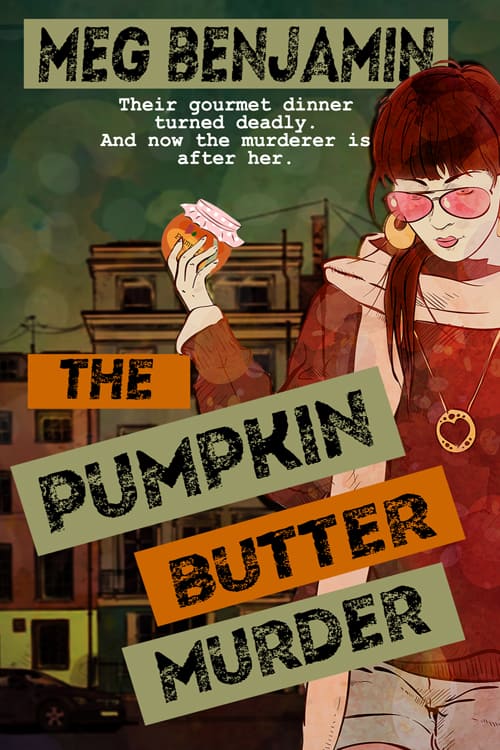The Formula
 I just finished the latest Amanda Quick novel, The Mystery Woman (and before I go any farther, yes, I know Amanda Quick is actually Jayne Anne Krentz, but let me go on referring to her as Amanda Quick for simplicity’s sake). Like most Amanda Quicks of the last few years, it follows a formula: woman with paranormal abilities finds herself in perilous situation with unknown assailant. She’s rescued by a mysterious man with his own paranormal abilities. They join forces to solve a mystery. They fall in love. Woman is put in hazardous position with unknown assailant. Mysterious man rescues her. They solve mystery. Curtain.
I just finished the latest Amanda Quick novel, The Mystery Woman (and before I go any farther, yes, I know Amanda Quick is actually Jayne Anne Krentz, but let me go on referring to her as Amanda Quick for simplicity’s sake). Like most Amanda Quicks of the last few years, it follows a formula: woman with paranormal abilities finds herself in perilous situation with unknown assailant. She’s rescued by a mysterious man with his own paranormal abilities. They join forces to solve a mystery. They fall in love. Woman is put in hazardous position with unknown assailant. Mysterious man rescues her. They solve mystery. Curtain.
As far as I’m concerned, the fact that several of Quick’s recent novels follow this formula isn’t particularly troubling. Most romance novelists follow formulas, including me. Sometimes they’re the formulas set up by the genre (e.g., the Impoverished Bluestocking Attracts Bored Aristocrat formula), and sometimes, as with Quick, they’re formulas that the author herself has established in previous books and that readers have come to accept as the formula for an Amanda Quick book.
Now the fact that romance novels frequently follow formulas is sometimes cited by critics as another reason why romance novels suck, but as usual that’s nonsense. All popular fiction follows formulas—it’s just that some critics prefer the formulas used in mysteries and sci fi to those used in romance. When I read a Carl Hiaasen novel or a James Lee Burke novel I’m also seeing their formulas, and although I like them, I’m not ready to agree that they’re automatically superior to the formulas used by, say, Elizabeth Lowell.
There is, in fact, something comforting about a book that follows a formula, particularly if it’s an author you like. When I pick up a Nora Roberts thriller, I have a fair idea of what I’m in for and I settle down with a lot of enthusiasm to see how she’s elaborated the formula this time. You reach certain landmarks in the book and you feel satisfied: Oh yeah, you think, this is where the hero will realize how sharp the heroine really is.
The only problem with the whole formula idea comes when the author lets herself get lazy about using it. Formulas can have a certain fill-in-the-blanks quality. If an author has a long-established plot routine, she needs to be very careful to keep the other elements of the story fresh. The characters need to have something special going on so that they’ll hold your interest when the plot doesn’t. If the author falls into a routine, the results can be monotonous, and you find yourself thinking same old same old. I’ve been known not to finish books when they’re a little too by-the-numbers.
The Mystery Woman doesn’t quite fall into that category, but it’s not among Quick’s best either. I have a feeling she’s gotten a little too comfortable with this particular routine—the story and characters are both a little too predictable. And that’s a shame.
But there’s a relatively easy solution to this problem. You create a new formula. Or you rework an old one. Or you tinker with the one you’ve been using just enough to make it sort of new. Not so much that you change it drastically mind you (ask Charlaine Harris how readers react to that), but enough to make readers occasionally sit up and blink.
I’m guessing Quick will do that at some point. She’s done it before and it worked out. And when she does, I’ll be reading her new one, thinking Oh well played! I didn’t see that coming.
Posted in Blog • Tags: Amanda Quick, On Reading, On Writing, plot formulas, romance writing | 3 Comments







I just finished The Mystery Woman too and had the same reaction. Frankly, I’m getting a little tired of the paranormal trop anyway no matter who’s writing it. The great thing about Librarian Krentz is that she does know how to write; her sentences flow; her descriptions are evocative and tight without too much overflow; her dialogue is life-like to the era, and her scenes have something in them that points toward change or revelation and push the plot forward. She’s a smart writer and I read all her stuff, but I do wish, like you, that she’d reinvent this particular formula.
FYI — sorry about that extra “s” on the word “points.” Me bad.
Sharon, like you I’ll go on reading Jayne Anne regardless. She’s an engaging writer, but I’d like to see her widen her horizons a bit.